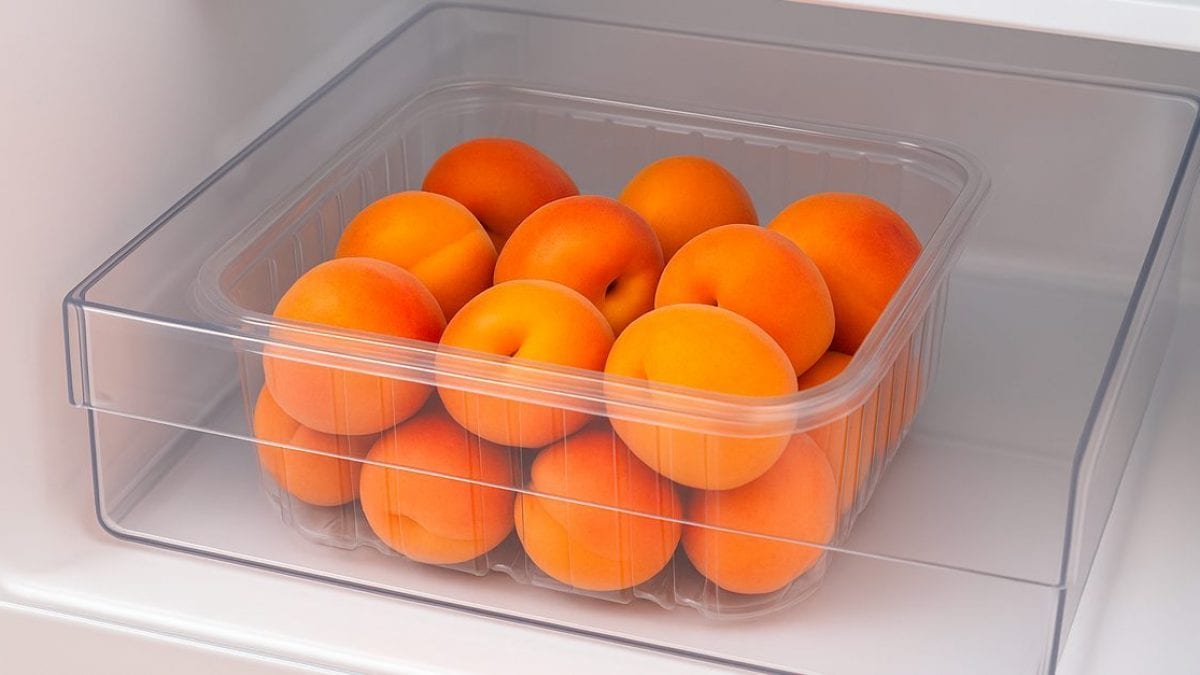
Summer is coming and so are apricots: they are the most loved summer fruits thanks to their soft and juicy consistency, their sugary flavor and their great versatility. They are delicious eaten alone as a snack, but they are also excellent for making delicious desserts. Their only flaw? They don't last long enough. But solving this problem is easy, because there are different methods for preserving apricots so that they last a long time: one of the best known is to transform them into a very sweet jam (or rather, preserve: jam is only that of citrus fruits), but in reality these fruits can be stored in the refrigerator if you need to use them within a not too long period of time, or they can be frozen, dried and even in syrup. Let's discover all the best methods for preserving apricots and always having them available even when summer is over.
1. Store in The Refrigerator
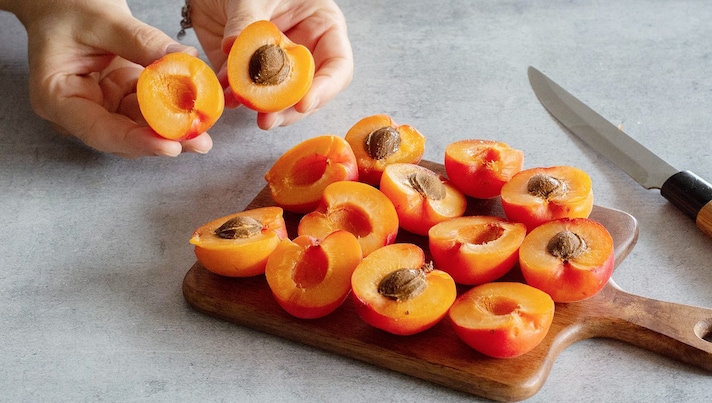
Storing apricots in the refrigerator is very useful, as long as you consume them within a short period of time: it is not one of the long-term preservation methods and, in the cool of the appliance, the fruits can last from 3 to 7 days, depending on the level of ripeness they have reached when you put them away. The best way to proceed is to wash the apricots carefully to remove any residue, dry them carefully and then place them in a food bag, preferably a breathable one to eliminate excess humidity, or in an airtight container that you can then place in the vegetable drawer (remember that each compartment of the refrigerator is designed for a specific food and has a different temperature). The only contraindication of this method is that the cold could make the flavor of the apricot less intense, but to restore it you just have to take the fruit out half an hour before eating it and give it time to regain its original flavor once it is at room temperature.
2. Store in The Freezer
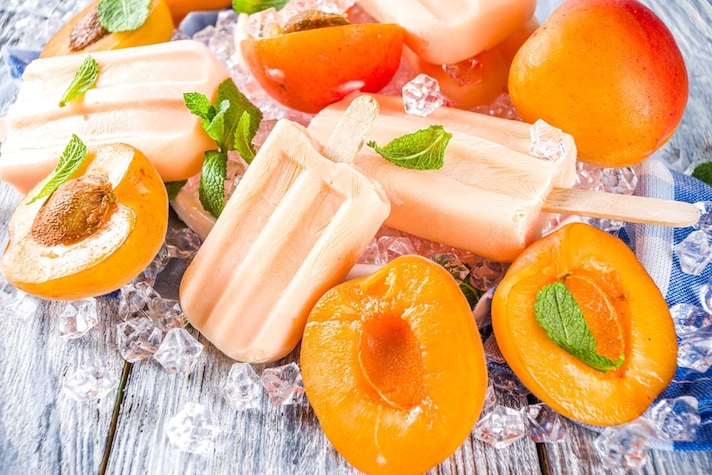
Let's move on to the longer-lasting methods: one of the most effective ways to keep apricots as natural and intact as possible is to freeze them. You can proceed in different ways, but first of all you have to make a selection and choose only the fruits that are not bruised or have no imperfections, then also in this case you will have to wash the fruits and dry them thoroughly. At this point you can choose to store the apricots whole, cut in half or already cut into pieces, insert them in airtight bags or containers for food and then put them in the freezer; if you have decided to store the fruits already cut it would be better to freeze the pieces first on a tray for about three hours, so that they do not stick to each other, and only then move them to the bag. Frozen apricots can be kept intact for up to 8 months and using them is very easy, you just have to take them out of the freezer and put them in the fridge for a few hours before consuming them.
3. Dry Them
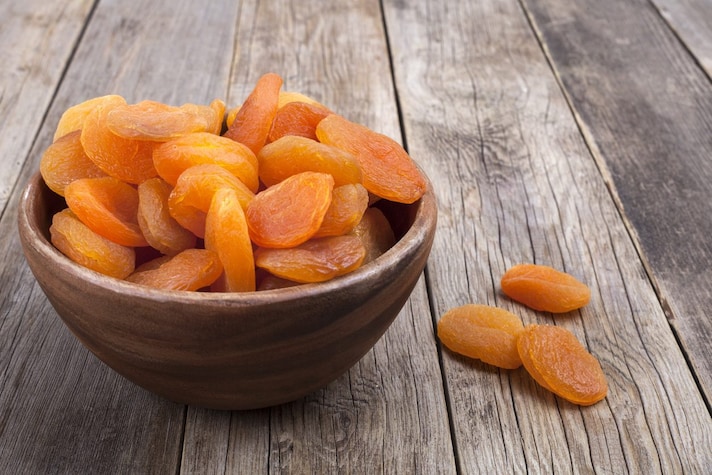
Halfway between a preservation method and a real recipe, drying is a great way to always have apricots available and use them both as healthy snacks and as an ingredient in various sweet and savory recipes. The drying process is a bit long but it will be worth it: first wash the apricots under cold water and dry them carefully, then place them whole in a pan with water and baking soda (each kilogram of apricots requires 2 liters of water and 2 teaspoons of baking soda), bring to the boil and leave to cook for a minute. Drain the apricots, dry them and as soon as they are cold cut them in half so as to remove the stone, then place them on the oven rack with the internal part facing downwards. Leave the apricots to cook for 5 hours at 194°F/90°C and repeat the same operation for three days, then after the third cooking place them in the sun for 5 days (but bring them indoors during the night, or the humidity will ruin the process). At this point the apricots are finally dried: place them in a tightly closed glass jar and consume them within 6 months.
4. Apricots in Syrup
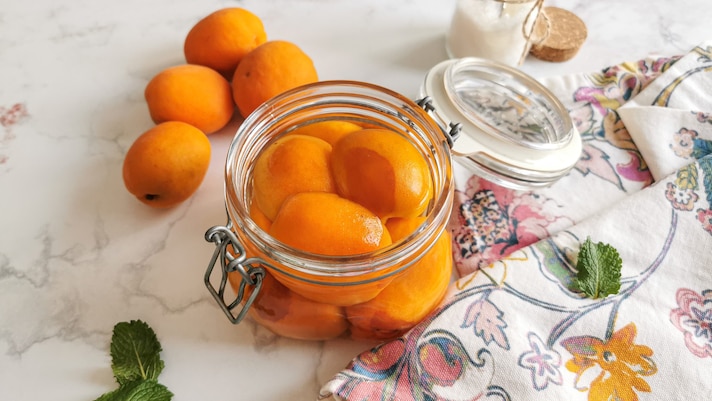
One of the most particular methods for preserving apricots is to make them in syrup: it is a preserve that lasts all year and that allows you to enjoy them alone as a sweet treat, or to use them in different recipes, for example to make cakes, tarts and loaf cakes, to garnish a cup of ice cream or to enjoy them on toasted wholemeal bread for breakfast. The apricots, washed and dried, must be cut and freed from the stone, then cooked in water for a couple of minutes. The second phase involves a longer cooking together with the sugar (600 grams of sugar for every 1.5 kg of apricots) and the peel of an organic lemon: the mixture must boil until the sugar has become a syrup. Once ready, place the apricots in previously sterilized jars and cover them with the syrup obtained, finally proceed with creating the vacuum. When the jars are cold you can store them in a cool, dry place, away from heat sources, and let them rest. The apricots in syrup can be enjoyed about a month after their preparation and within a maximum of 2-3 months from when you prepared them, but once the jar is opened it should be kept in the refrigerator for a maximum of a week.
5. Apricot Jam
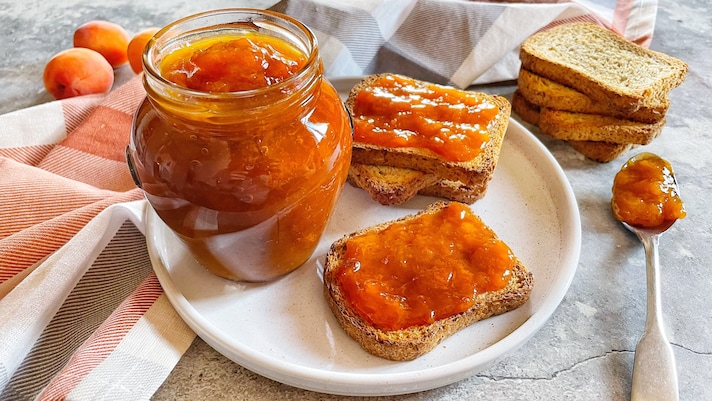
Apricot jam is the most popular way to preserve apricots for a long time and for good reason: it is a delicious and genuine recipe, perfect to make when the fruit is at its ripest and to always have on hand to spread on a slice of bread or to fill tarts, biscuits and desserts of all kinds. To prepare the jam you only need three ingredients, ripe apricots cut into cubes, granulated sugar and lemon juice: everything must macerate for at least 4 hours, then it must be cooked on a low heat for half an hour, stirring occasionally, until it obtains a dense and creamy consistency. To check if the jam is ready, you can use the saucer test: let a drop fall into the centre of a cold plate and, if it remains compact when tilted, it can be transferred to jars, which must then be closed with the appropriate hermetic caps and turned upside down until completely cooled. Apricot jam can be stored for about 6 months in sterilized glass jars in the pantry or in a cool, dry place away from heat sources. Once opened, keep it in the refrigerator and consume it within 4-5 days.
;Resize,width=767;)
